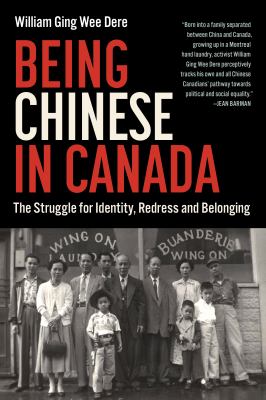
print
|
Being Chinese in Canada : the struggle for identity, redress and belonging
Copies
1 Total copies, 1 Copies are in,
0 Copies are out.
Subjects
Language
English
Series
Dimensions
23 cm.







